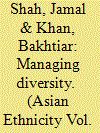| Srl | Item |
| 1 |
ID:
181671


|
|
|
|
|
| Summary/Abstract |
Although rebel groups are players on the international stage, little is known about their financial strategies at this scale. Existing research suggests that rebels succeed in cross-border trade by using informal networks that evade state authority. Yet rebels face a critical challenge: they operate in a normative environment that values state recognition and penalizes their illegitimate status. New evidence reveals that rebels can overcome this barrier and better connect to global economies not by evading the state but by infiltrating its institutions. Drawing on unprecedented data—the internal records of armed groups and their trading partners—I examine how rebels use state agencies in conflict zones to manufacture a legal cover for wartime trade. By using state agencies to provide false certification, rebels can place the stamp of state on their trade deals. This strategy of legal appropriation is a fundamentally different model of how conflict markets skirt sanctions and connect to global buyers. I develop a framework for how this strategy works that traces how international sovereignty norms and sanctions regimes create incentives for rebels, firms, and bureaucrats to coordinate around this legal veneer across the supply chain. The framework and evidence contribute theoretical and policy understandings for rebel governance, state building and fragmentation, and illicit global markets.
|
|
|
|
|
|
|
|
|
|
|
|
|
|
|
|
| 2 |
ID:
191787


|
|
|
|
|
| Summary/Abstract |
Modern societies are confronted with a plethora of issues that have far-reaching socio-political ramifications. The negative effects of diversity are primarily the result of state policies. Where societies were not homogenous, attempts were made to bring desperate populations together to advance official nationalist projects. Pakistan, being dominantly a Muslim state, has religio-cultural and ethnic diversity where minority groups have raised their voices against the unjust state’s policies. This study examines how these issues evolved over the course of Pakistan’s history. The paper attempts to answer the question ‘why has Pakistan’s plurality become unmanageable?’ The results demonstrate that a high degree of centralization of authority, the adoption of Urdu as a national language, a sense of domination of the central institutions by the Punjabis, underrepresentation of ethnic minorities in state institutions, and controlled society has aggravated the position of diverse groups in Pakistan, with colossal consequences to national economy and social harmony.
|
|
|
|
|
|
|
|
|
|
|
|
|
|
|
|